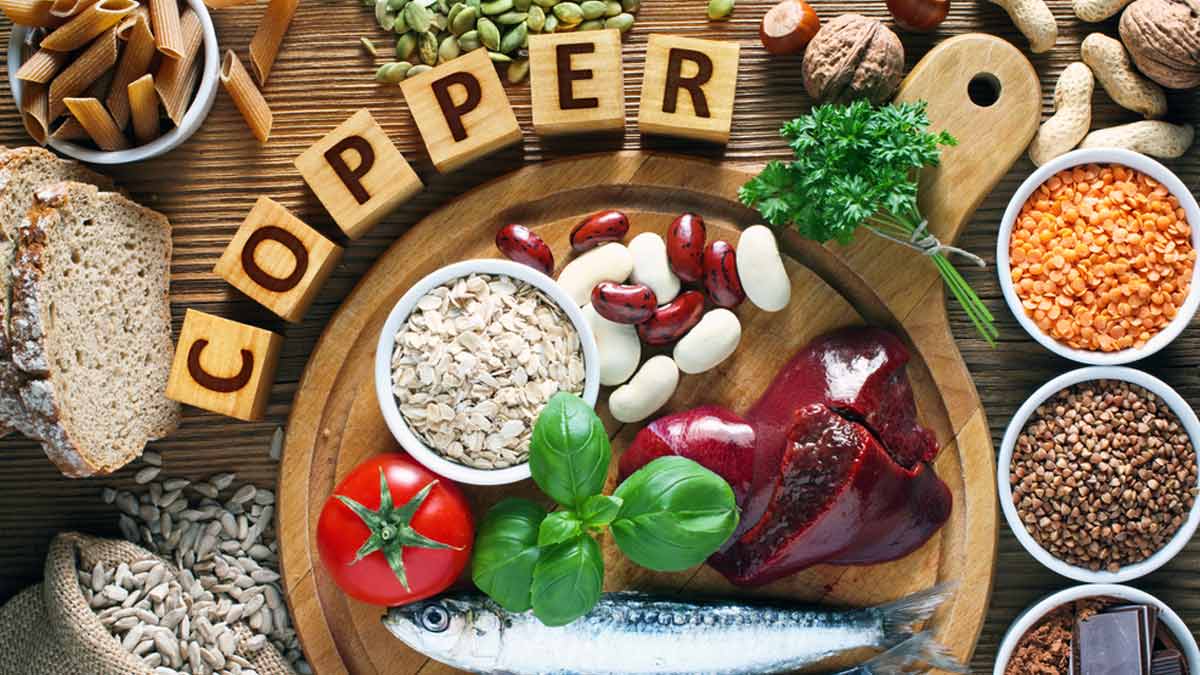
While the spotlight often falls on macronutrients like protein, fats, and carbohydrates, micronutrients play an equally crucial role in maintaining optimal health. One such essential micronutrient is copper, a trace mineral with many functions in the body.
Table of Content:-
According to National Institutes of Health- Office of Dietary Supplements, copper is essential for the production of red blood cells, collagen, and energy. Essentially it is important for effective functioning of the neural system, immune function, nd metabolism. Here's it's roles in detail:
Enzymatic Functions

Copper is a key component of various enzymes involved in essential physiological processes. It plays a critical role in the production of energy, the formation of connective tissues, and the synthesis of neurotransmitters.
Antioxidant Defense
Acting as a cofactor for superoxide dismutase, an antioxidant enzyme, copper helps neutralise free radicals in the body. This antioxidant defence is vital in preventing oxidative stress and cellular damage.
Iron Metabolism
Copper is intricately linked to iron metabolism. It assists in the absorption of iron from the intestines and its release from storage sites, ensuring proper iron levels for the formation of red blood cells.
Also Read: Get Your Hands On These 5 Copper-Rich Foods To Boost Metabolism
Connective Tissue Formation

Copper is essential for the cross-linking of collagen and elastin, the proteins that provide structure to connective tissues. This is crucial for maintaining the integrity of skin, blood vessels, and bones.
The Best Food Sources of Copper
Here are some of the best food sources to ensure you're reaping the benefits of this vital element:
- Shellfish: Seafood, particularly oysters, crab, and lobster, stands out as an excellent source of copper. These delicious options not only add flavour to your meals but also contribute significantly to your copper intake.
- Organ Meats: Liver, especially beef liver, is a powerhouse of nutrients, including copper. While organ meats should be consumed in moderation, they can be a valuable addition to a balanced diet.
- Legumes: Beans, lentils, and chickpeas are not only rich in plant-based protein but also provide a good amount of copper. Including legumes in your meals is a nutritious way to boost your copper intake.
- Dark Chocolate: Good news for chocolate lovers – dark chocolate is a tasty source of copper. Opt for high-quality dark chocolate with a cocoa content of 70% or more to maximize the benefits.
Also Read: Drink Water From Copper Vessels To Avail These 7 Health Benefits
Ensuring your diet is rich in copper is a fundamental aspect of maintaining overall health and well-being. By incorporating a variety of copper-rich foods into your meals, you can support your body's needs and contribute to a balanced and nourishing diet. As always, consult with healthcare professionals for personalized dietary advice and ensure you're meeting your unique nutritional requirements.
Also watch this video
How we keep this article up to date:
We work with experts and keep a close eye on the latest in health and wellness. Whenever there is a new research or helpful information, we update our articles with accurate and useful advice.
Current Version